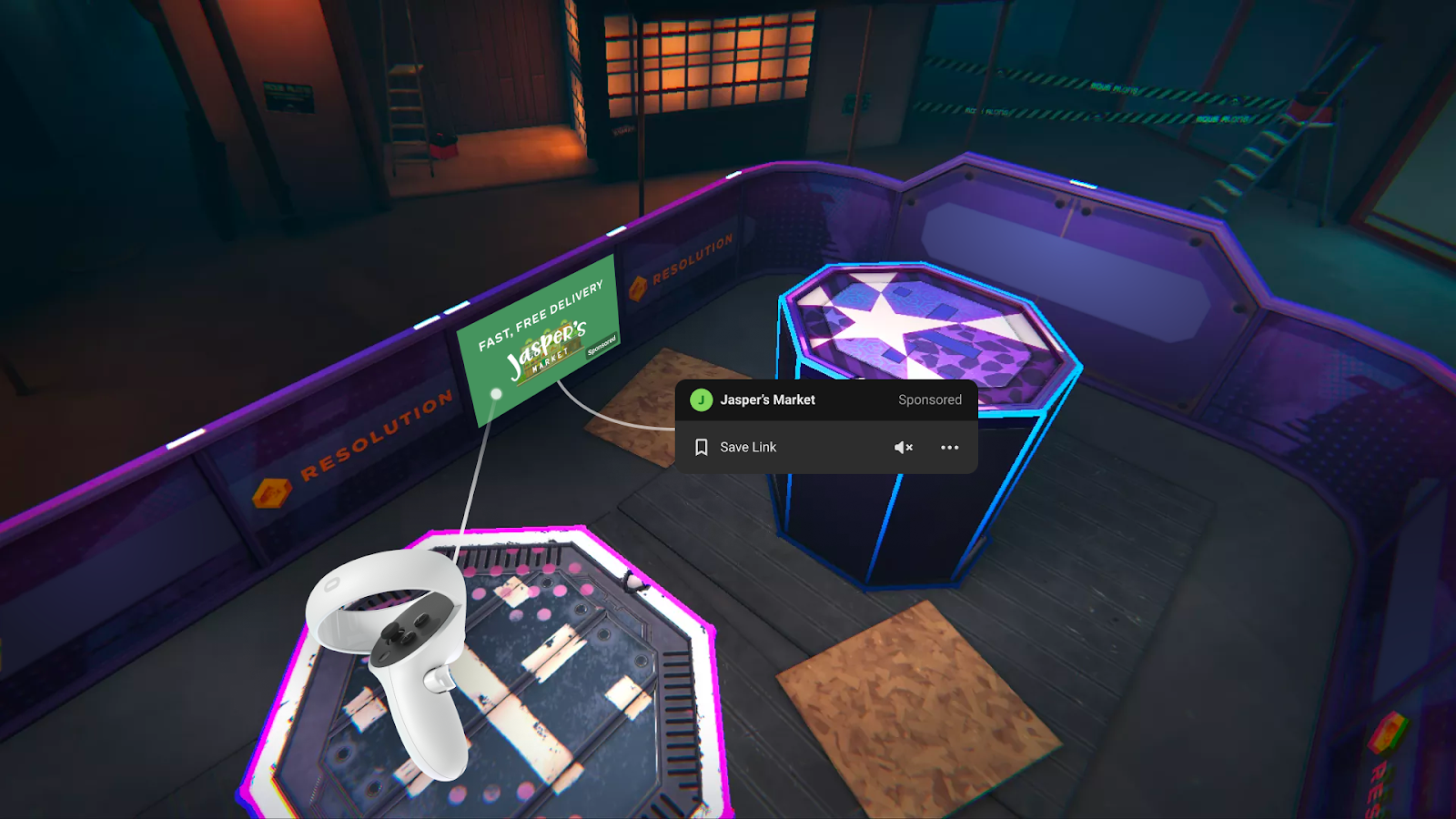Facebook testing in-headset virtual reality ads for Oculus
Facebook says Oculus ads will follow its advertising principles and people will have the controls to hide specific ads or hide ads from an advertiser completely, adding that it is currently investing in unobtrusive ads as a new way for developers to build businesses and also exploring new ad formats that are unique to VR.

Facebook said Wednesday it is starting a small test of in-headset virtual reality (VR) ads for Oculus Quest. Initially, the test will begin with a few developers including Blaston from Resolution Games and later the company plans to expand it based on the feedback from developers and the community.
"Ads in VR will be different from ads elsewhere and this is a space that will take time and people’s feedback to get right," Andrew Bosworth, VP, Facebook Reality Labs, tweeted on Wednesday.
We’re starting a small test of in-headset ads with a few developers in the coming weeks. We want to help developers generate revenue and help people find great experiences at better prices&mdashthis is a part of how we’ll create a healthy, self-sustaining platform for everyone.
— Boz (@boztank) June 16, 2021
Facebook says Oculus ads will follow its advertising principles and people will have the controls to hide specific ads or hide ads from an advertiser completely, adding that it is currently investing in unobtrusive ads as a new way for developers to build businesses and also exploring new ad formats that are unique to VR.
"As with everything FRL builds, our exploration of brand engagement on Oculus is being guided by our responsible innovation principles to ensure we're building inclusive, privacy-centric products," Facebook wrote in a blog post.
The social networking giant believes that ads will provide an opportunity to open up new revenue streams for developers, thereby broadening the type of apps and content on the Oculus platform.
"Our primary focus at Facebook Reality Labs (FRL) is to bring more people into VR, advance the consumer experience, and make progress on our longer-term augmented reality initiatives. We're also exploring new ways for developers to generate revenue this is a key part of ensuring we're creating a self-sustaining platform that can support a variety of business models that unlock new types of content and audiences," adds the blog post.










